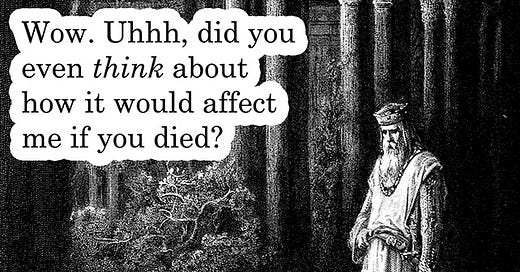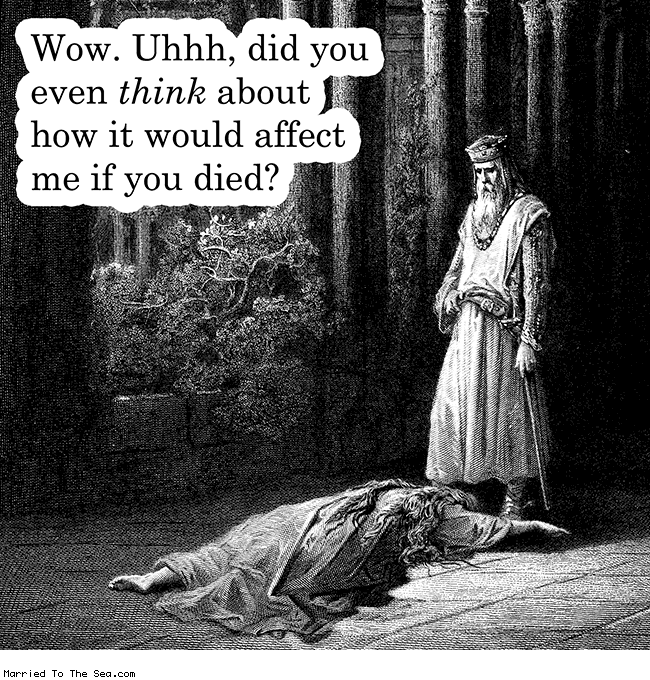It’s difficult, maybe impossible, to explain why folly can be funny. But good sense difficulty never stopped this mouse from trying.
Why is this cartoon funny?
The regal figure’s self-absorption is so complete, it’s hard to believe. But, if we didn’t believe it, it wouldn’t be funny. There’s the paradox.
Why do we believe it? Because we know it’s us.
Once, at one of my life’s most important cruxes, on the morning of a stupendous deliverance, my beloved and I found ourselves grumbling about it, mere minutes after our victory. When it struck us, we looked at each other in embarrassment for our folly.
It wasn’t difficult to recognize Israel in ourselves. Freed from bondage through miracles, granted enormous wealth through undeserved plunder, and…
Complaining.
A wise man once said “…unless Christianity is wholly false, the perception of ourselves which we have in moments of shame must be the only true one.”
So the clueless, self-absorbed King in the cartoon is funny because we recognize him in the moment before his shame… and, subtly, we thank the Lord that, at least in this passing moment, we’re not behaving that way.
The laughter is a form of thanksgiving. Not the “Lord I thank thee that I’m not like so-and-so over there”. Laughter is too ephemeral for that. It’s too from-the-belly.
Laughter, if we allow it, enables us to muck our stables a little more deeply. It increases the volume of our spade.
The liturgy contains the epithet of confession: “Miserable offenders”. Etymology has it as:
late Middle English: from French misérable, from Latin miserabilis ‘pitiable’, from miserari ‘to pity’, from miser ‘wretched’.
But let me suggest a neological usage. Miser from Latin also has the sense of having mercy upon. Able… well, everybody knows what that means.
So, turn it around and view it from the Father’s eyes. What is a miserable person?
It’s a person whom God is able to show mercy to.
With that confidence, lay hold of your miser-ableness and laugh at folly when you see it in a joke; whether the town drunk, the self-righteous, or the self-absorbed. The laughter will help you mark out that behavior so you may recognize it better in yourself. Good surgeons often mark out the site of the incision before getting out the scalpel.




